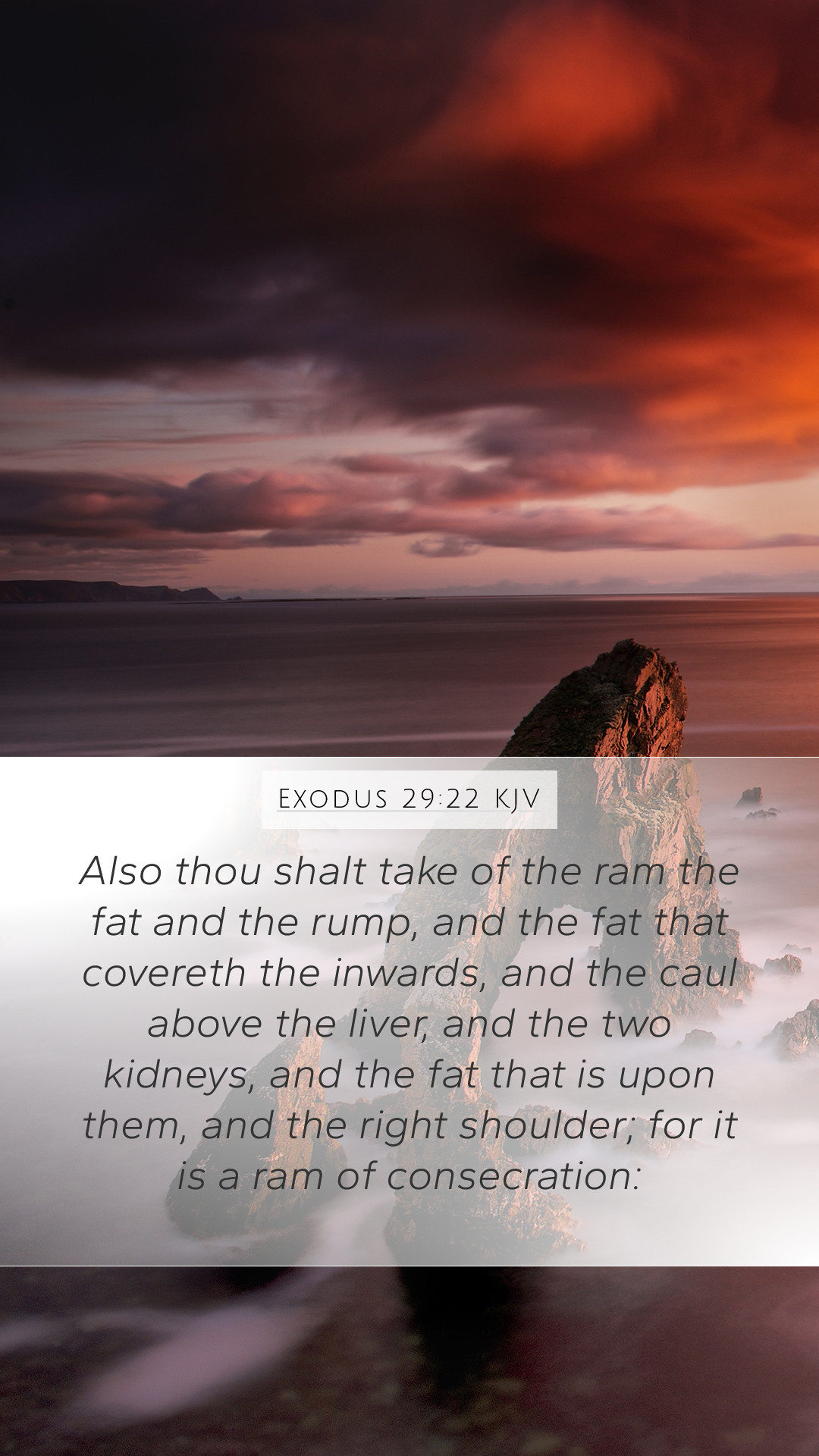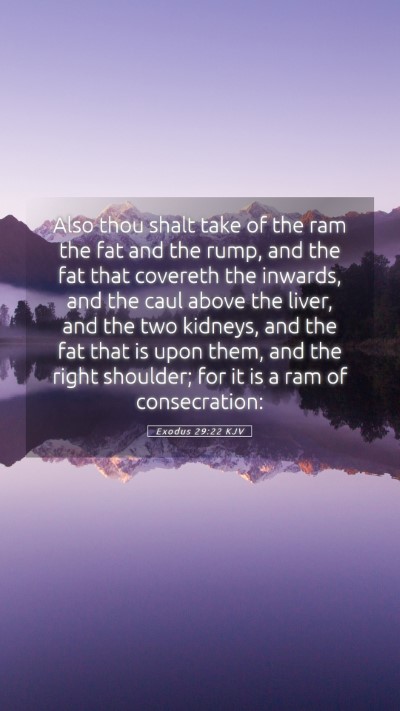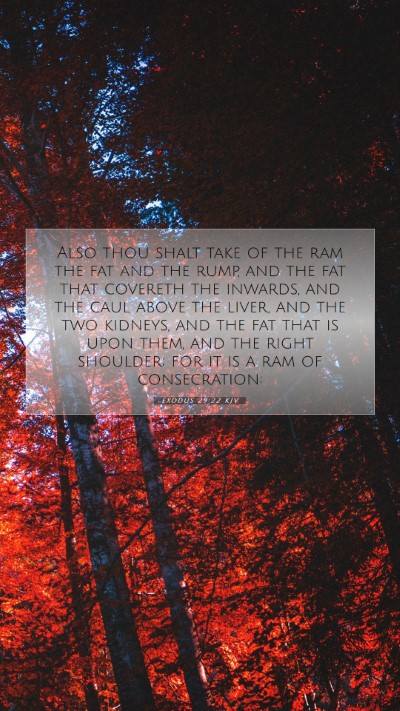Understanding Exodus 29:22
Exodus 29:22 states, "Also, you shall take the fat of the ram, and the fat of the tail, and the fat that covers the entrails, and the fatty lobe attached to the liver, and the two kidneys, and the fat on them, and the right thigh;..." This verse describes specific components of the sacrificial offerings that were to be used in the consecration of the priests. Through careful analysis of this passage, significant insights regarding ritual sacrifice and its importance in the Old Testament covenant are revealed.
Key Themes
-
Ritual Purity and Consecration: The prescribed offerings in Exodus 29 are integral to the ordination of Aaron and his sons as priests. Matthew Henry notes that the elaborate rituals signify the need for purity and the seriousness of approaching God.
-
Symbolism of Sacrifice: Adam Clarke emphasizes that the fat portions and the specific parts of the animal represented the best offerings one could present to God, indicating the acknowledgment of His sovereignty and holiness in worship.
-
Divine Instructions: Albert Barnes remarks on the meticulous nature of God's instructions. These details underline that worship must be conducted according to God’s standards, reflecting His holiness and the seriousness of the covenant relationship.
Historical Context
The ancient Hebrew sacrificial system was essential for maintaining a right relationship with God. Within the broader context of Exodus, the Israelites are emerging as a covenant people. The procedures outlined in this chapter illustrate their unique identity and devotion to Yahweh, setting them apart from other nations.
Significant Insights
-
Representation of Christ: The sacrificial lamb signifies the ultimate sacrifice of Jesus Christ. This foreshadowing is explored in biblical exegesis, linking the rituals to New Testament revelations.
-
Understanding Scripture: The details in this verse serve as a key to understanding broader biblical themes of atonement and purification, which resonate throughout both testaments.
-
Intercessory Role of Priests: The act of sacrifice highlights the priest's role as an intercessor, bridging the gap between the holy God and sinful humanity, a concept prevalent in both Old and New Testament theology.
Application for Today
Understanding the significance of sacrifice in Exodus 29:22 invites modern believers to reflect on their approach to worship and devotion. It encourages the practice of offering one's best to God, whether in acts of service, time, or resources. Engaging in online Bible study on these themes can deepen one’s relationship with God and illuminate the ongoing relevance of Scripture.
Related Cross References
- Leviticus 3:16-17 - Discusses the fat belonging to God in sacrifices.
- Hebrews 10:1-10 - Contrasts Old Testament sacrifices with Christ's ultimate sacrifice.
- Romans 12:1 - Encouragement to offer ourselves as living sacrifices.
Conclusion
In building a solid foundation for understanding Scripture, the insights drawn from Exodus 29:22 provide a wealth of theological and practical applications for contemporary believers. This verse is not merely a historical account but a vivid reminder of the divine expectations for worship and the profound acknowledgment of God’s holiness that continues to resonate through time.


